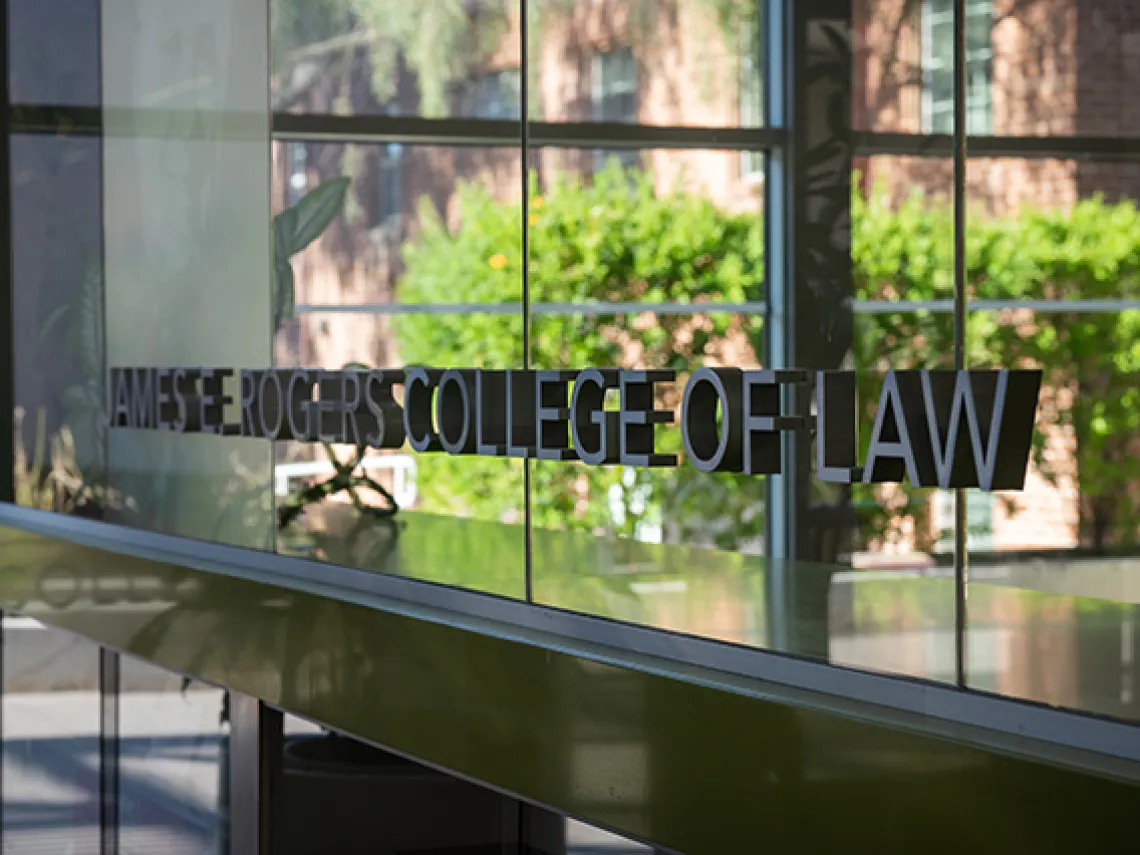Constitutional Scholar Andrew Coan Challenges Conventional Wisdom on Originalism, Federal Power and Abortion Rights
Coan's new scholarship questions the sincerity of the hallowed Federalist Papers, shows that originalism is unworkable and indeterminate if practiced rigorously and explores the role of moral judgment in the Supreme Court’s recent abortion decision.

In a moment of sweeping constitutional change, Milton O. Riepe Chair in Constitutional Law Andrew Coan from the University of Arizona James E. Rogers College of Law has written three thought-provoking new papers. Two focus on originalism and federalism, showing that the original public meaning of the Constitution was fundamentally unsettled on the most important questions of federal power. The third argues that Dobbs v. Jackson Women’s Health Center was not lawless, merely an ordinary example of conservative judges supporting a conservative result.

In "The Original Meaning of Enumerated Powers" and “Interpreting Ratification,” Coan and co-author David S. Schwartz from the University of Wisconsin Law School, explore the doctrine of “enumerationism,” which limits Congress's powers to those specifically mentioned in the Constitution. This principle is frequently invoked to challenge important federal legislation, including the Affordable Care Act and the Clean Water Act, but Coan and Schwartz’s articles present a compelling alternative view.
"Enumerationism is widely accepted, but the originalist case for it is remarkably weak and undertheorized," says Coan, who also directs the William H. Rehnquist Center on the Constitutional Structures of Government at UArizona. He explains that the original meaning of the Constitution's enumeration of federal powers was ambiguous, leaving room for different interpretations: “The founding was not a placid era of good feelings,” Coan said. “There was a raging debate over the Constitution’s meaning! Everyone knows The Federalist Papers today, but they were just the campaign propaganda of one side.”
Because the meaning of the Constitution was hotly debated from the beginning, originalist judges and courts have no choice but to consider other traditional factors like history, precedent, and constitutional structure. “We think these factors support a general congressional power to solve national problems, even if no specifically enumerated power applies,” said Coan. “We do not expect the current Supreme Court to agree with us. But people should understand that this view is entirely consistent with originalism. If the Court decides otherwise, that is a value judgment. The founders are not making them do it.”
In a third paper, "What Is the Matter with Dobbs?," Coan examines the controversial Supreme Court case, Dobbs v. Jackson Women’s Health Organization, which overturned the constitutional right to abortion. The decision has sparked an intense debate about its legitimacy, with many critics labeling it as “utterly lawless.” Like these critics, Coan views the decision “wrong, gratuitously cruel, and poorly reasoned in important respects.” But he also sees Dobbs as fundamentally ordinary.
"This is just how U.S. constitutional law works,” Coan explained. “Judges interpreting open-ended language cannot avoid making moral judgments. From a pro-life perspective, every argument against the decision seems unpersuasive because every one of those arguments ultimately depends on a pro-choice perspective," notes Coan. “Not every decision we strongly disagree with is lawless. And leveling that charge too freely will deprive it of power when it is truly justified. The appropriate response to decisions like Dobbs is to criticize the Court’s mistaken moral judgments.”
Abortion rights and the history of federal power may seem like disparate topics, but Coan sees a common thread. “There is no silver bullet that can remove moral judgment from difficult constitutional cases. The precedent of Roe v. Wade could not do it in Dobbs. And original meaning cannot do it in debates over federal power. We have a line in ‘Interpreting Ratification’: We cannot and should not expect the founders to settle our constitutional debates for us. They could not even settle their own.’ In the end, it is up to us—Supreme Court justices, but also the American people.”
